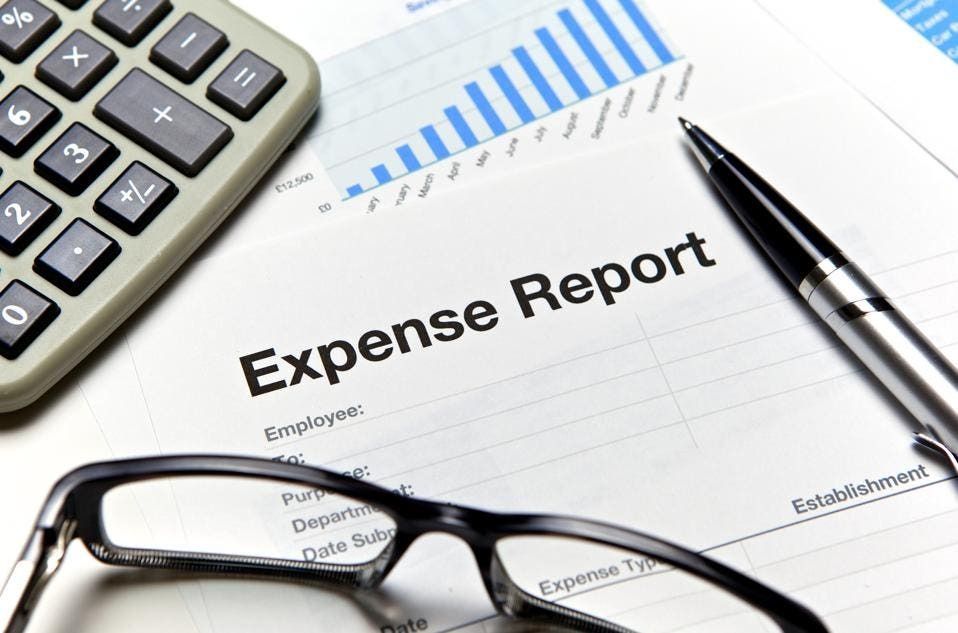3 Mistakes Independent Contractors Should Avoid When Categorizing Business Expenses

Getty Images
Freelancers and independent contractors can make a number of mistakes when it comes to categorizing business expenses. I should know; I’ve made almost all of them. But doing business expenses correctly can save you money when the taxman comes around. And doing them incorrectly is technically illegal (tax fraud—such a downer!). Eighty percent of full-time freelancers fear unexpected expenses, but if you know how to categorize them correctly, you may end up getting some of that money back at tax time.
First, you need to know what a business expense is. The following are examples:
- Home office expenses: If you work from home—as 86% of freelancers do—there are a number of home expenses that can count as business expenses. For instance, if you have a home office that takes up 25% of your house, then 25% of your mortgage or rent can be considered a freelance expense.
- Equipment and supplies: Things like your computer, printer, software, office supplies, and other essentials.
- Travel and transportation: If you travel for business, you may be able to deduct expenses such as housing, meals, transportation, and Airbnb cancellation costs when you realize you accidentally booked one in a barn that you’re sharing with a literal horse (just me?).
- Marketing and advertising: Expenses related to promoting your business, such as website design and ads.
- Professional services: Expenses related to hiring accountants, lawyers, and other professionals to help you run your business, as well as any trainings you do to further your career.
An example of a non-business expense:
- The $600 I spent on eBay bidding on a red scarf I truly believed was the one Taylor Swift left in Jake Gyllenhaal’s house. When the scarf arrived, I realized it was orange.
These are just examples. It can take some work to figure out the distinction, so here are three mistakes to avoid:
Mixing Expenses
One of the most common mistakes freelancers make is failing to separate their personal and business expenses. “Freelancers assume that because money is spent, it's a business expense,” says Zhanna Kelley, CPA. “For something to be a business expense, as per IRS guidelines, it must be ‘ordinary and necessary.’ Therefore all expenses must be related to the business, ordinary in the course of business and not exorbitant.”
This is a tough one, because if I buy a 24-ounce cold brew on a Monday afternoon, I need it for both business and personal reasons. However, I have the following tips for putting your expenses into one bucket or another. For each expense, ask yourself the following:
- What’s the purpose of this expense? If it’s primarily for business purposes, then it is likely a business expense (get this one tattooed to your arm, because it’s really easy to forget).
- Is this expense necessary for the operation of my business? In the case of my 24-ounce cold brew DING DING DING YES!
If you struggle with this, you’re not alone—there are items for which they’re sometimes a business expense, sometimes not. “The major error people make is categorizing meals as 50% vs. 100%,” says Kelley. “In general, 100% are meals out of town. Fifty percent of meals are those in the home area where you take a client or potential client out for a meal. Just eating and groceries is not a deductible expense.”
Poor Record Keeping
Another big mistake is failing to keep accurate records of your business expenses. This can result in lost deductions if you spent money you didn’t track. Unfortunately, the only way to ensure you have an accurate record is to truly track every expense all year long. This is best done as you spend the money, rather than via keeping a shoebox of old receipts as my mother used to do.
One way to make your record-keeping easier is to have a business bank account. For me, I needed to open one when I created my LLC, but you can open one regardless of the type of business you have. I use separate credit cards for personal and business expenses, but sometimes, it’s not as easy as remembering which card to swipe. Sometimes, I pay in cash, which I love, because it lets me feel like I’m a character in a Jane Austen novel! However, even when using cash, I try to write down what I bought and whether it’s a business or personal expense. I keep it all in one Google GOOG +0.4% spreadsheet to add together to my business credit card statements at tax time.
Ignoring Small Expenses
I don’t even like cold brew—it’s just hard for me to wake up without instantly setting $7 on fire (I live on the Isle of Manhattan). And these $7 cups of Joe add up over time. It's easy to overlook small expenses, but many small numbers added together creates a big number (I was a math major). There’s truly no business expense too small to count—even if it’s a $1 coffee. Also, if you live somewhere with $1 coffee, I’d love to know about it, since I may well want to move.
If you have any questions, I’d recommend you consult with a tax professional. “Tax law” is a phrase that starts off bad and gets worse. These laws are famously complex and change from year to year, and the last thing I want is for you to get sued. And just remember—if the idea of figuring out your expenses from the ground up wears you down, they make 32-ounce cold brews.
This article, written by Ginny Hogan, appeared first on Forbes.

